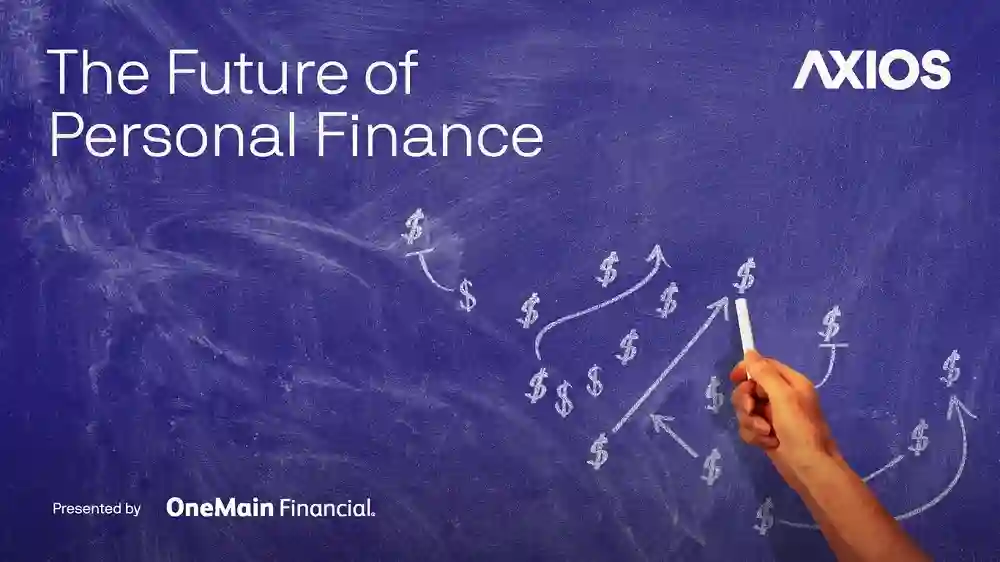In an increasingly digitized world, the realm of personal finance is undergoing a profound transformation, thanks to the rapid growth of financial technology, or fintech. Fintech innovations are reshaping the way we manage our money, invest, and plan for the future. In this article, we will explore the exciting developments and trends that are shaping the future of personal finance, empowering individuals to take control of their financial well-being.
The Fintech Revolution
Fintech refers to the use of technology to provide financial services and solutions. This includes everything from mobile banking apps and digital payment platforms to robo-advisors and blockchain-based cryptocurrencies. Fintech companies have emerged as disruptors in the traditional financial industry, offering innovative solutions that are more convenient, efficient, and user-friendly than traditional banking and investment methods.
Key Fintech Innovations
Several key fintech innovations are driving the transformation of personal finance:
- Mobile Banking Apps: Mobile banking apps have become essential tools for managing finances. They allow users to check account balances, transfer money, pay bills, and even invest—all from the convenience of their smartphones.
- Digital Payments: Digital payment platforms like PayPal, Venmo, and Cash App have revolutionized the way we send and receive money. They make it easy to split bills, pay for goods and services, and even make international transactions.
- Robo-Advisors: Robo-advisors are automated investment platforms that use algorithms to create and manage portfolios based on individual risk tolerance and financial goals. They offer low-cost, diversified investment options.
- Peer-to-Peer Lending: Peer-to-peer lending platforms connect borrowers with individual investors, bypassing traditional banks. This can result in lower interest rates for borrowers and higher returns for lenders.
- Cryptocurrencies: Cryptocurrencies like Bitcoin and Ethereum have gained popularity as alternative investments. They offer the potential for decentralized, secure, and transparent financial transactions.
- Blockchain Technology: Blockchain, the technology underlying cryptocurrencies, is being explored for its potential to enhance security, transparency, and efficiency in various financial processes, including record-keeping and supply chain management.
- Insurtech: Insurtech startups are leveraging technology to streamline the insurance industry, making it easier for individuals to find and purchase insurance policies tailored to their needs.
Trends Shaping the Future of Personal Finance
The future of personal finance is being shaped by several significant trends:
- Financial Inclusion: Fintech is expanding access to financial services for underserved populations, including those without traditional bank accounts. Digital banking and payment solutions are making financial inclusion a reality.
- Artificial Intelligence (AI): AI-powered chatbots and virtual assistants are enhancing customer service in the financial industry. Machine learning algorithms are improving fraud detection and personalizing financial advice.
- Data Privacy and Security: As fintech relies heavily on data, there is a growing focus on data privacy and security. Innovations in encryption and biometrics are enhancing the protection of personal financial information.
- Regulatory Changes: Governments and regulatory bodies are adapting to the fintech landscape by implementing new regulations and frameworks to ensure consumer protection and financial stability.
- Sustainable Finance: Environmental, Social, and Governance (ESG) investing is gaining traction, and fintech platforms are offering sustainable investment options that align with individuals’ values.
- Decentralized Finance (DeFi): DeFi is an emerging trend that aims to create decentralized financial systems using blockchain technology. It offers opportunities for peer-to-peer lending, yield farming, and decentralized exchanges.
- Personalized Financial Planning: Fintech is enabling more personalized financial planning, with algorithms analyzing individual financial situations and providing tailored advice and recommendations.
- Open Banking: Open banking initiatives are allowing consumers to share their financial data securely with third-party providers, leading to more comprehensive financial services.
- Contactless Payments: The adoption of contactless payment methods, including NFC-enabled cards and mobile wallets, is reducing the reliance on physical cash and cards.
Empowering Financial Decision-Making
One of the most significant benefits of fintech innovations is the empowerment of individuals to make informed financial decisions. Here’s how fintech is transforming various aspects of personal finance:
- Budgeting and Expense Tracking: Fintech apps provide real-time tracking of income and expenses, helping users create and stick to budgets.
- Investing: Robo-advisors offer automated, low-cost investment solutions, making investing accessible to a broader range of people.
- Retirement Planning: Fintech platforms help individuals plan for retirement by calculating required savings, investment strategies, and projected retirement income.
- Savings and Micro-Investing: Apps enable users to round up everyday purchases and invest the spare change, encouraging savings and investment habits.
- Credit Scoring: Fintech companies use alternative data sources and machine learning to assess creditworthiness, potentially expanding access to credit for those with limited credit histories.
- Financial Education: Fintech apps often include educational resources, articles, and tools to improve financial literacy and understanding.
- Access to Global Markets: Cryptocurrencies and online investment platforms provide access to global financial markets, allowing diversification beyond local offerings.
Challenges and Considerations
While fintech innovations offer numerous benefits, there are also challenges and considerations:
- Cybersecurity: As financial transactions increasingly occur online, the risk of cyberattacks and data breaches is a growing concern.
- Regulatory Compliance: Fintech companies must navigate complex and evolving regulatory environments to ensure compliance with financial laws.
- Digital Divide: Not everyone has access to the internet and digital devices, which can create disparities in access to fintech services.
- Overreliance on Technology: Depending solely on technology for financial management can lead to vulnerabilities in the event of technical failures or outages.
- Privacy Concerns: Collecting and sharing personal financial data for the sake of convenience raises privacy concerns, necessitating robust data protection measures.
Conclusion
The future of personal finance is undeniably intertwined with fintech innovations. These technologies are democratizing access to financial services, offering personalized solutions, and transforming the way individuals manage their money. However, it is essential to approach fintech with caution, remain vigilant about cybersecurity, and stay informed about evolving regulations. As fintech continues to evolve, it promises to empower individuals to take greater control of their financial futures, providing opportunities for financial inclusion and sustainable, informed financial decision-making.



